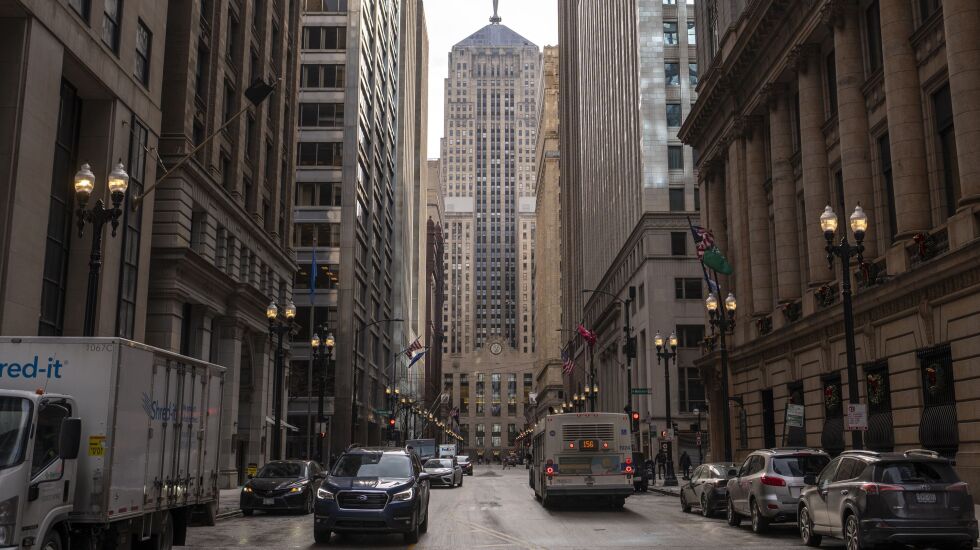
Mayor Lori Lightfoot’s plan to turn the “monoculture” of offices along Chicago’s historic La Salle Street into a “mixed-use corridor” where people live, work and play took a step forward Thursday.
The City Council’s Finance Committee approved a $5 million grant program to entice neighborhood restaurants and “cultural” establishments to come downtown and open new locations on the ground floor of La Salle Street buildings with high vacancy rates.
Last fall, Lightfoot asked building owners to propose ways to revitalize a moribund La Salle Street corridor with the Loop’s highest vacancy rate of 36%. The La Salle Reimagined Initiative called for filling nearly 5 million square feet of vacant commercial space along the canyon-like corridor into new storefront businesses and more than 1,000 new homes, including 300 affordable units.
Although there are “nearly 5 million square feet of vacant commercial space” along the La Salle Street corridor, Lightfoot complained on that day that “not a single unit of affordable housing” was in those stubbornly empty buildings.
“Diversifying this corridor is an essential component in our strategy to restore La Salle’s vitality, create more neighborhood-serving retail, and foster a more inviting pedestrian environment in the heart of the Loop that will benefit all Chicagoans,” she said.
On Thursday, the ambitious plan started to take shape.
The Finance Committee authorized a program offering grants of up to $250,000 to help defray the opening costs for new, ground-floor businesses along La Salle Street between Court Place on the north and Van Buren Street on the south. The program will be funded with money generated by the La Salle-Central tax increment financing district.
Retailers expanding from low-or-moderate income neighborhoods are eligible for an additional $50,000, for a total grant of $300,000.
Deputy Planning and Development Commissioner Mary O’Connor said the city is making an “unprecedented, $100 million investment” in the Small Business Improvement Fund program across the city and the La Salle Street expansion is a big part of the three-year investment.
“We won’t be assisting with things like roofs or things above those [ground-floor] areas,” O’Connor told the Finance Committee.
“It can’t be a franchise. No liquor stores. We won’t have any sort of bars or banquet halls. Residential is not permitted. There could be residential above. But SBIF won’t fund upper floors.”
Retiring Zoning Committee Chairman Tom Tunney (44th), owner of Ann Sather’s Restaurants, said he has his doubts about the ambitious program and how long it might take to achieve.
“I know we’re trying to reimagine La Salle Street as a 24/7 community. But it’s gonna take a long time because you have to have the consumers before the business follows,” he said.
Retiring Housing Committee Chairman Harry Osterman (48th) called the La Salle Street corridor a “blank slate.”
“Trying to get businesses from outside downtown — specifically on the South and West Sides either together under one roof or individually — to come downtown and open a second location. That’s huge,” he said.







